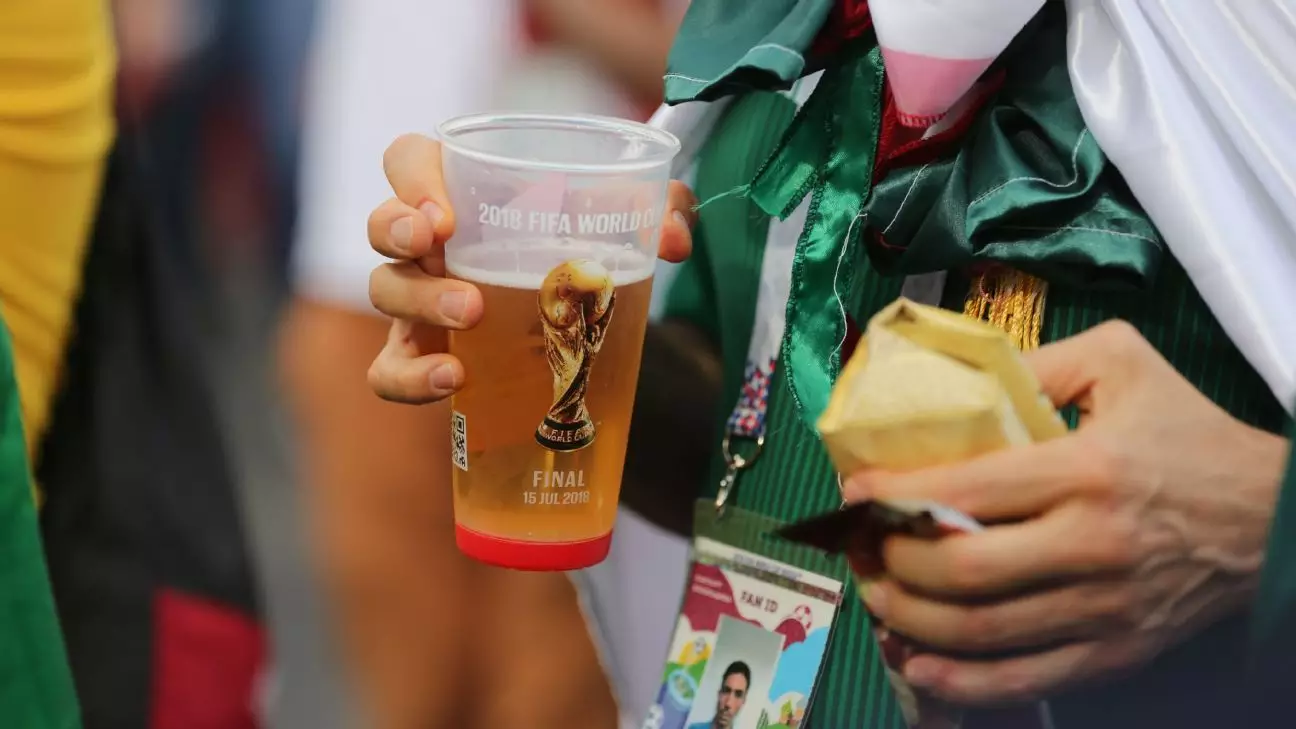The 2034 World Cup in Saudi Arabia is set to become a momentous occasion, not just for football enthusiasts, but also as a cultural focal point reflecting the complexities of hosting a global sporting event in a nation with unique regulations. One significant restriction highlighted by Saudi officials is the complete ban on alcohol during the tournament. Prince Khalid bin Bandar Al Saud, the Saudi ambassador to the UK, emphasized the importance of respecting local customs, stating that “plenty of fun can be had without alcohol.” This assertion underscores a broader perspective that prioritizes cultural integrity over the expectations of international visitors, underlining a stark contrast with many Western sporting events where alcohol consumption is integral to the fan experience.
The decision to uphold strict laws surrounding alcohol during the event raises questions about the fan experience and hospitality in a nation securing its position on the global stage. It evokes memories of the previous World Cup in Qatar, where the alcohol debate was a contentious issue culminating in last-minute changes that allowed limited sales. The ambassador’s assertion that Saudi Arabia is a “dry country” and the witticism, “You can’t live without a drink?” reveal a nuanced understanding of the cultural divide facing visitors, along with a reluctance to adapt to foreign expectations.
Beyond the cultural discussions surrounding alcohol, serious human rights issues have come to the forefront regarding Saudi Arabia’s hosting of the World Cup. Reports from organizations such as Amnesty International have painted a grim picture of the conditions migrant workers face, raising alarms over exploitation and unsafe labor conditions linked to the construction of venues. These ethical concerns must not be overlooked, particularly when discussing the implications of hosting a global event. The tournament represents an opportunity for tourism and international dialogue; yet, the backdrop of systemic labor abuses and potential fatalities casts a shadow over these prospects.
In addition to labor concerns, the treatment of LGBTQIA+ individuals in Saudi Arabia poses significant ethical questions as well. The ambassador’s assurances that “everyone will be welcomed” stand in stark contrast to the reality of a legal system that punishes same-sex conduct harshly. Just how genuine are these commitments to inclusivity if the backdrop remains hostile to a section of society that finds itself mostly marginalized in such cultural landscapes?
As the tournament looms closer, the challenge for Saudi Arabia lies in striking a fine balance between preserving its cultural identity and accommodating the evolving expectations of a global audience. While the hosting of the World Cup offers a unique platform for cultural exchange, it also necessitates critical engagement with external and internal factors influencing this event. Stakeholders within and outside the kingdom must foster open dialogues about inclusivity and human rights so that the event transcends mere athletic performance, evolving into a catalyst for social progress.
The 2034 World Cup in Saudi Arabia presents an intricate interplay of cultural pride and pressing ethical challenges. The discussions surrounding alcohol restrictions and human rights issues serve as vital indicators of the nation’s readiness to engage with a complex global community. As we progress towards this historic event, it remains imperative that we scrutinize not just the sporting aspect but the socio-political landscapes that shape the experience for fans and players alike.

